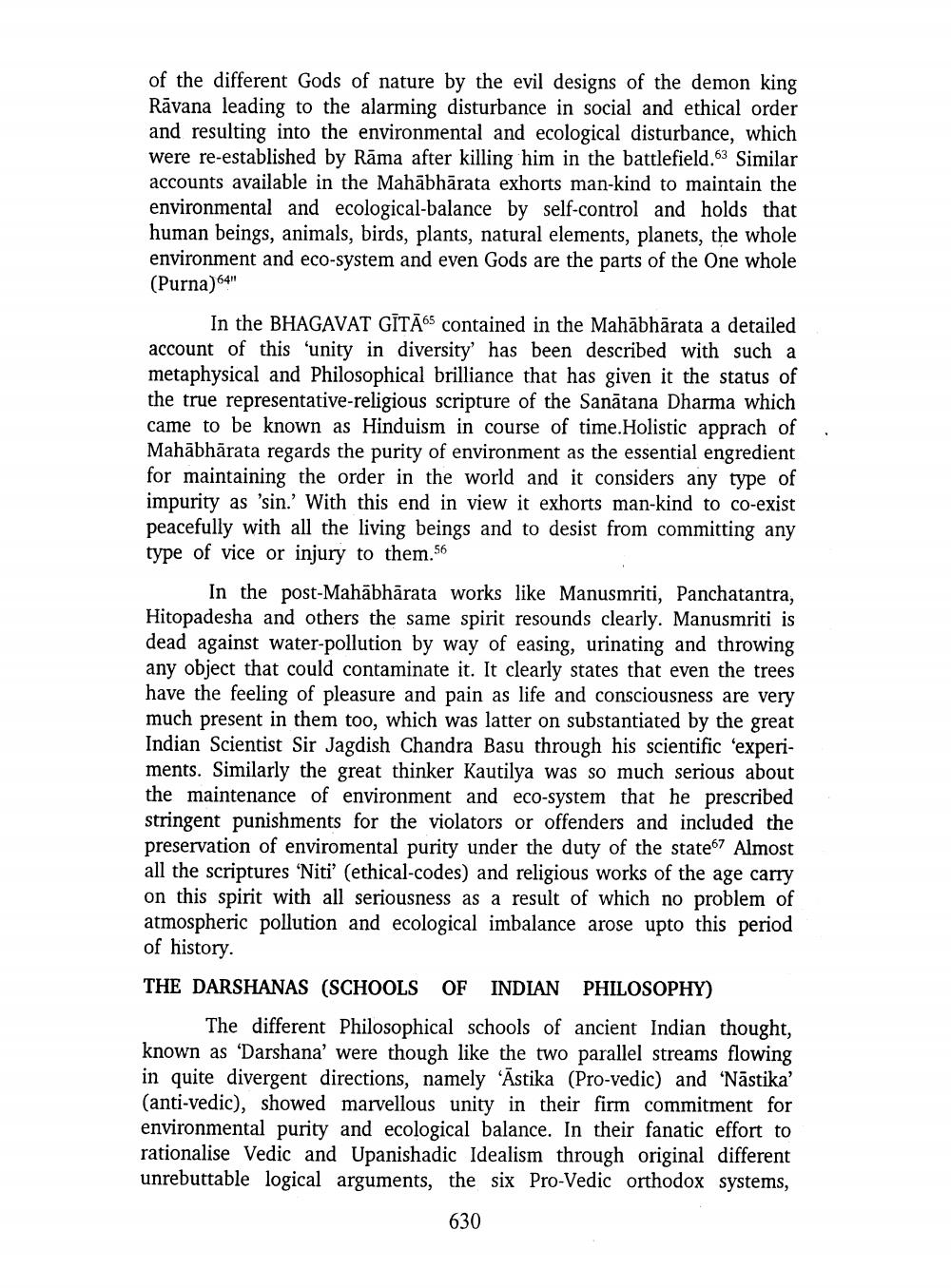________________
of the different Gods of nature by the evil designs of the demon king Rāvana leading to the alarming disturbance in social and ethical order and resulting into the environmental and ecological disturbance, which were re-established by Rāma after killing him in the battlefield.63 Similar accounts available in the Mahābhārata exhorts man-kind to maintain the environmental and ecological-balance by self-control and holds that human beings, animals, birds, plants, natural elements, planets, the whole environment and eco-system and even Gods are the parts of the One whole (Purna)64"
In the BHAGAVAT GĪTĀ65 contained in the Mahābhārata a detailed account of this 'unity in diversity' has been described with such a metaphysical and Philosophical brilliance that has given it the status of the true representative-religious scripture of the Sanātana Dharma which came to be known as Hinduism in course of time. Holistic apprach of Mahābhārata regards the purity of environment as the essential engredient for maintaining the order in the world and it considers any type of impurity as 'sin.' With this end in view it exhorts man-kind to co-exist peacefully with all the living beings and to desist from committing any type of vice or injury to them. 56
In the post-Mahābhārata works like Manusmriti, Panchatantra, Hitopadesha and others the same spirit resounds clearly. Manusmriti is dead against water-pollution by way of easing, urinating and throwing any object that could contaminate it. It clearly states that even the trees have the feeling of pleasure and pain as life and consciousness are very much present in them too, which was latter on substantiated by the great Indian Scientist Sir Jagdish Chandra Basu through his scientific 'experiments. Similarly the great thinker Kautilya was so much serious about the maintenance of environment and eco-system that he prescribed stringent punishments for the violators or offenders and included the preservation of enviromental purity under the duty of the state67 Almost all the scriptures ‘Niti' (ethical-codes) and religious works of the age carry on this spirit with all seriousness as a result of which no problem of atmospheric pollution and ecological imbalance arose upto this period of history. THE DARSHANAS (SCHOOLS OF INDIAN PHILOSOPHY)
The different Philosophical schools of ancient Indian thought, known as “Darshana' were though like the two parallel streams flowing in quite divergent directions, namely 'Astika (Pro-vedic) and "Nāstika' (anti-vedic), showed marvellous unity in their firm commitment for environmental purity and ecological balance. In their fanatic effort to rationalise Vedic and Upanishadic Idealism through original different unrebuttable logical arguments, the six Pro-Vedic orthodox systems,
630




